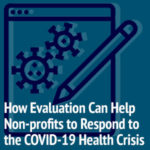
We’re living in a period where a lot of people are compelled to stay home, and many folks are out of work. Ironically, many employees are busier than ever. For the UPS driver, the grocery store cashier, medical personnel, truck drivers, and many assembly line workers, busyness is not a choice, but an on-going condition. While the COVID-19 crisis has increased the pace of work for those who are deemed “essential workers,” even in less stressful times, the pace of work is an intense and unrelenting activity.
Although for many, busyness is imposed and involuntary, for others–especially middle and upper managers, and entrepreneurs– busyness is not an imposed condition, but a prestigious choice. Indeed, busyness is a status symbol and an indicator of social importance. “In a recent paper published in the Journal of Consumer Research, researchers from Columbia University, Harvard, and Georgetown found through a series of experiments that the busier a person appeared, the more important they were deemed.” https://globalnews.ca/news/3343760/the-cult-of-busyness-how-being-busy-became-a-status-symbol/ The authors of the paper write, “We argue that a busy and overworked lifestyle, rather than a leisurely lifestyle, has become an aspirational status symbol. A series of studies shows that the positive inferences of status in response to busyness and lack of leisure are driven by the perceptions that a busy person possesses desired human capital characteristics (competence, ambition) and is scarce and in demand on the job market.” As early as 1985, Barbara Ehrenreich noted that effect on women, “I don’t know when the cult of conspicuous busyness began, but it has swept up almost all the upwardly mobile, professional women I know.” https://www.nytimes.com/1985/02/21/garden/hers.html
Why are so many people obsessively busy? Tim Kreider writes in “The ‘Busy’ Trap” New York Times, June 30, 2012 “Busyness serves as a kind of existential reassurance, a hedge against emptiness; obviously your life cannot possibly be silly or trivial or meaningless if you are so busy, completely booked, in demand every hour of the day.” Similarly, Lissa Rankin writes, “It seems to me that too many of us wear busyness as a badge of honor. I’m busy, therefore I’m important and valuable, therefore I’m worthy. And if I’m not busy, forget it. I don’t matter.”
In a recent article. “7 Hypotheses for Why we are So Busy Today” Kyle Kowalski posits the following hypotheses about busyness:
- Busyness as a badge of honor and trendy status symbol — or the glorification of busy — to show our importance, value, or self-worth in our fast-paced society
- Busyness as job security — an outward sign of productivity and company loyalty
- Busyness as FOMO (Fear of Missing Out) — spending is shifting from buying things (“have it all”) to experiences (“do it all”), packing our calendars (and social media feeds with the “highlight reel of life”)
- Busyness as a byproduct of the digital age — our 24/7 connected culture is blurring the line between life and work; promoting multitasking and never turning “off”
- Busyness as a time filler — in the age of abundance of choice, we have infinite ways to fill time (online and off) instead of leaving idle moments as restorative white space
- Busyness as necessity — working multiple jobs to make ends meet while also caring for children at home
- Busyness as escapism — from idleness and slowing down to face the tough questions in life (e.g. Maybe past emotional pain or deep questions like, “What is the meaning of life?” or “What is my purpose?”)
Whatever the reasons, busyness has its costs. The most obvious result is “burnout”. Others include: the long-term negative impact on happiness, well-being, and health. Ultimately, busyness may make us feel like we are important and in demand, have a high status, and command the respect of others, but it may also be destructive.
Resources:
“The cult of busyness: How being busy became a status symbol” Global News, March 30, 2017
‘Ugh, I’m So Busy’: A Status Symbol for Our Time” Joe Pinsker, The Atlantic, March 1, 2017
Busyness 101: Why are we SO BUSY in Modern Life? (7 Hypotheses) By Kyle Kowalski, Sloww
“Conspicuous Consumption of Time: When Busyness and Lack of Leisure Time Become a Status Symbol,” Silvia Bellezza, Neeru Paharia, Anat Keinan Columbia Business School Research Archive
“The cult of busyness in the nonprofit sector” Susan Fish, Charity Village, May 25, 2016
HERS, Barbara Ehrenreich. New York Times, Feb. 21, 1985
“This is why you’re addicted to being busy” Jory MacKay, Fast Company, August 12, 2019
“Are You Addicted to Being Busy? Why we should consider the hard truths we mask by staying busy.” Lissa Rankin M.D., Psychology Today, Apr 07, 2014
“Busy is a Sickness,” Scott Dannemiller, Huffington Post, February 27, 2015





